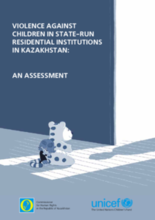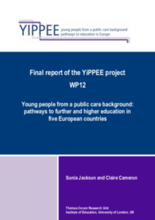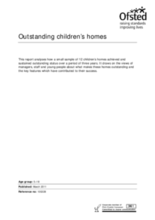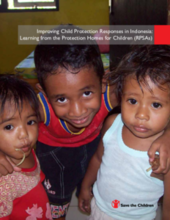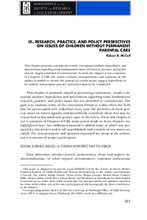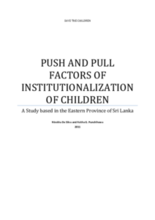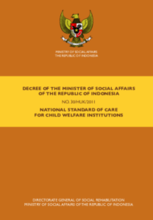Displaying 1321 - 1330 of 1511
This study on violence against children in state-run residential institutions in Kazakhstan was conducted under the national Office of the Commissioner for Human Rights and UNICEF. Data was collected from six different types of state run- residential institutions for children in 3 regions using a multi-methods approach, including surveys with children ( 9-18 years old) and staffs, and interviews with young people (17-23 years old) who had left the care of these institutions.
The first comparative study of young people who have been in state care as children and their post-compulsory education, was undertaken by a team of cross-national researchers.
This report analyzes how a small sample of 12 children’s homes in England achieved and sustained outstanding status over a period of three years. The report describes and interprets what inspectors found to be the reasons for success in these outstanding homes and how the providers themselves explained the factors that contribute to outstanding care. The experience of the children and young people who live in these homes is also a key element of the report as it is, of course, the real hallmark of quality.
This report reviews the role and practice of State-established child protection residential institutions in Indonesia focused on providing services for children defined as being in need of special protection under the Child Protection law, in particular child victims of abuse, neglect or exploitation including victims of trafficking.
The first ever World report on disability, produced jointly by WHO and the World Bank, suggests that more than a billion people in the world today experience disability. This report provides the best available evidence about what works to overcome barriers to health care, rehabilitation, education, employment, and support services, and to create the environments which will enable people with disabilities to flourish. The report ends with a concrete set of recommended actions for governments and their partners.
This chapter presents conclusions, trends, conceptual analyses, hypotheses, and speculations regarding some fundamental issues of research, practice, and policy that are largely unsettled or controversial, regarding children without permanent parental care.
This research on the institutionalization of children in the Eastern Province of Sri Lanka was carried out by Save the Children with the support of the Department of Probation and Children Care Services and National Institute of Social Development.
Indonesia’s National Standards of Care for Child Welfare Institutions is a crucial policy instrument, drafted in response to the recommendations of the United Nations Committee on the Rights of the Child, regulating the provision of alternative care for children.
This document stresses the importance of healthy attachments for children, especially looked after children. It provides an overview of attachment theory, presents the policy context of looked after children in Scotland, outlines the evidence on effective interventions for children in care and their families, and highlights findings and practice implications.

